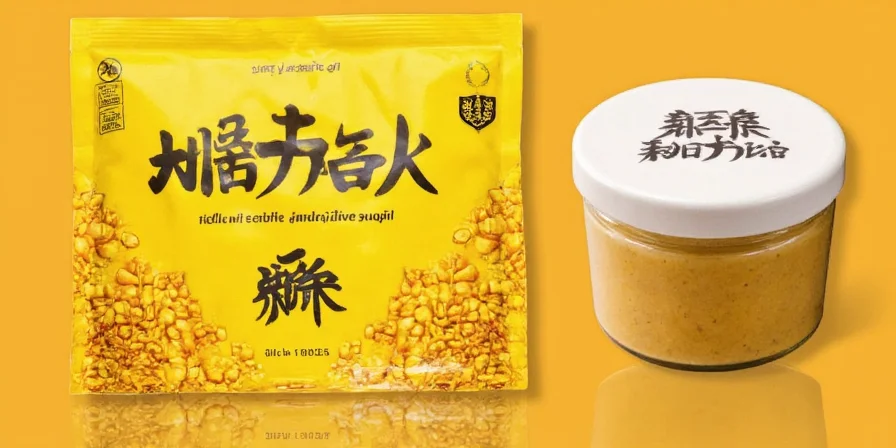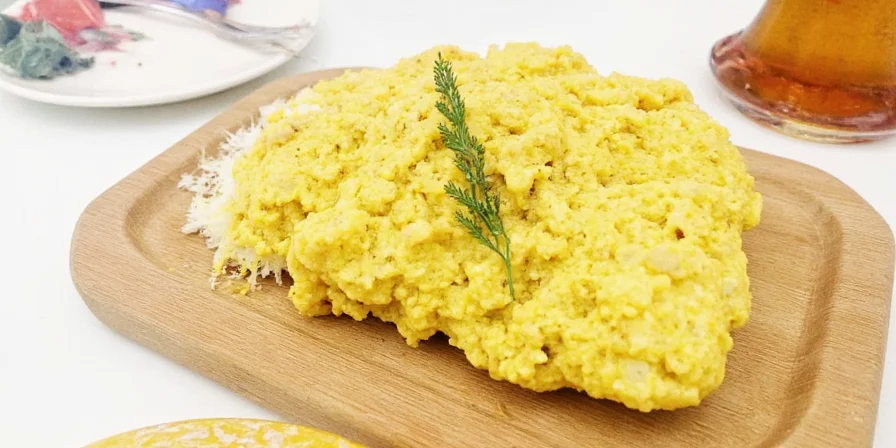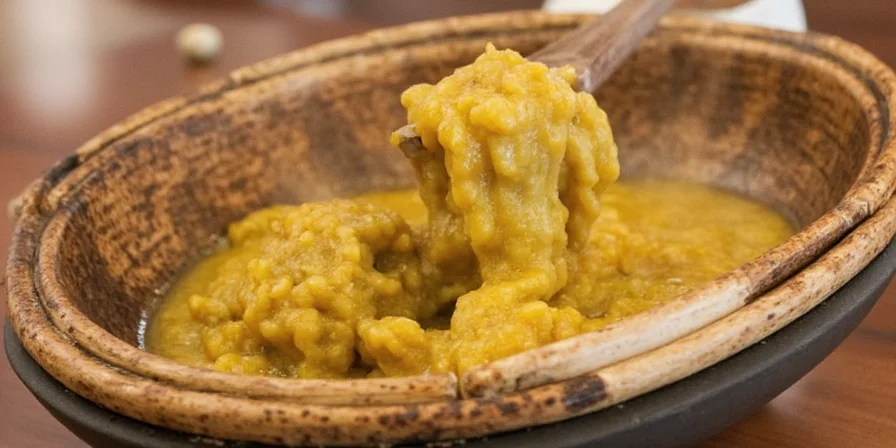Welcome, fellow spice lovers! Whether you're a seasoned chef or someone who just discovered that mustard comes in more than one form, you’ve come to the right place. Today, we’re diving deep into the world of mustard — not the condiment slathered on hot dogs, but the pungent, powerful, and sometimes perplexing spice known as mustard powder, and its wetter sibling — prepared mustard.
Designed specifically for home cooks and culinary enthusiasts, this guide delivers actionable insights to transform your understanding of mustard. You’ll gain science-backed techniques to control heat levels, optimize flavor pairings, and avoid common preparation pitfalls—turning ordinary meals into extraordinary culinary experiences through precise mustard application.
Table of Contents
- The Mustard Chronicles Begin
- What Exactly Is Mustard Powder?
- So… What’s the Deal with Prepared Mustard?
- Head-to-Head: Mustard Powder vs Mustard
- The Chemistry of Heat: Controlling Mustard's Sting
- How to Use Them Like a Pro
- Pro Tips for Cooking with Mustard Varieties
- Common Myths & Misconceptions
- Final Thoughts: Which One Wins Your Kitchen?
- Mustard Mastery: Frequently Asked Questions
The Mustard Chronicles Begin
Let’s start at the beginning. Mustard isn’t just a yellow blob squeezed onto a sandwich. It’s a plant, a spice, a sauce, and a flavor bomb waiting to be unleashed.

The confusion often starts when people ask:
“Is mustard powder the same as mustard?”
The short answer? No. Not even close. But stick around, and I’ll walk you through all the juicy details, flavor profiles, cooking hacks, and fun facts that will make you the mustard guru at your next BBQ.
What Exactly Is Mustard Powder?
Mustard powder is made by grinding dried mustard seeds into a fine dust. It can come from white, brown, or black mustard seeds, each offering a different level of heat and complexity.
- White mustard powder: Mild and slightly sweet.
- Brown mustard powder: More intense and commonly used in Indian cuisine.
- Black mustard powder: Spicy, sharp, and bold — perfect for those who like it hot!
Flavor Profile
Dry mustard powder has an earthy aroma and becomes pungent when mixed with liquid. It releases a strong volatile compound called allyl isothiocyanate — the same stuff that gives horseradish its kick!
So… What’s the Deal with Prepared Mustard?
Prepared mustard — the kind that squirts out of a bottle — is made by combining mustard powder (or whole seeds) with vinegar, water, salt, and sometimes sugar or spices. The result? A tangy, thick paste with varying levels of heat depending on the brand and style.

Popular Types of Prepared Mustard
- Yellow mustard: American classic, mild and vinegary.
- Dijon mustard: French-style, smooth, and sharper.
- Whole grain mustard: Contains visible seeds, rustic texture, bold flavor.
- Honey mustard: Sweet meets heat, crowd pleaser.
Head-to-Head: Mustard Powder vs Mustard
| Feature | Mustard Powder | Prepared Mustard |
|---|---|---|
| Form | Dry spice | Paste/liquid |
| Main Ingredients | Ground mustard seeds | Mustard seeds/powder + vinegar/water/others |
| Heat Level | Mild to spicy | Mild to very spicy |
| Shelf Life | Longer shelf life | Lasts a while refrigerated |
| Cooking Uses | Dry rubs, spice blends, tempering | Sauces, marinades, dressings |
The Chemistry of Heat: Controlling Mustard's Sting
Most guides skip the science, but understanding mustard's biochemical reaction unlocks precision cooking. When mustard powder contacts liquid, the enzyme myrosinase activates sinigrin compounds to produce allyl isothiocyanate—the heat compound. Crucially:
- Cold liquids maximize heat intensity by preserving enzyme activity
- Vinegar stabilizes the reaction, creating consistent tangy heat
- Hot liquids deactivate myrosinase, yielding milder results
- Resting time matters: Peak heat occurs at 10-15 minutes before gradually fading
This explains why traditional Indian recipes bloom mustard powder in hot oil (taming heat) while European preparations use cold water for sharper bites. Master this reaction to dial heat up or down for any dish.
How to Use Them Like a Pro
Now that you know the basics, let’s get practical. Here’s how to use both forms like a culinary ninja:
Mustard Powder Magic
- Marinades: Add a spoonful to meat or tofu marinades to boost depth and bite.
- Dry Rubs: Mix with paprika, garlic powder, and salt for killer BBQ rubs.
- Tempering: Common in Indian cooking — bloom in hot oil before adding other ingredients.
Prepared Mustard Marvels
- Sandwiches: The obvious choice, but try mixing with mayo or aioli for a twist.
- Glazes: Combine with honey or maple syrup and brush on roasted veggies or chicken.
- Dips: Mix with sour cream or Greek yogurt for quick veggie dips.

Pro Tips for Cooking with Mustard Varieties
Ready to elevate your game? Try these insider tricks:
- Add acid to mustard powder (like lemon juice or vinegar) to unlock its full potency.
- Store mustard powder in an airtight container — it loses potency over time if exposed to moisture.
- Refrigerate prepared mustard after opening to extend shelf life and preserve flavor.
- Use mustard as a binder in veggie patties or meatloaf — adds flavor AND helps hold things together.
- Experiment with homemade mustard — blend your own using mustard powder, wine, honey, or spices.
Common Myths & Misconceptions
Let’s bust some myths that have been lingering in the spice aisle too long:
- Myth: All mustards are created equal.
Fact: Different varieties = wildly different flavors and uses. - Myth: Mustard powder is outdated and boring.
Fact: It’s versatile, potent, and essential in many global cuisines. - Myth: Prepared mustard is just junk food flair.
Fact: Quality mustards add depth and sophistication to gourmet dishes.
Final Thoughts: Which One Wins Your Kitchen?
In this corner: the mighty mustard powder — compact, fiery, and ready to activate at a moment’s notice.
In the other: the smooth-talking prepared mustard — always on hand, slick, and ready to spread some flavor love.
Truth is, there’s no real winner. Both have their place in the kitchen. Keep them side by side, and you’ll never run out of ways to spice up your meals.
Summary Table
| Aspect | Mustard Powder | Prepared Mustard |
|---|---|---|
| Best For | Seasoning blends, baking, dry rubs | Condiments, sauces, glazes |
| Strength | Concentrated, builds quickly | Mellow to punchy, depends on type |
| Shelf Stability | Months to years | Several months open/refrigerated |
Now go forth and mustard boldly!
Mustard Mastery: Frequently Asked Questions
Can I substitute mustard powder for prepared mustard in recipes?
Yes, with precise adjustments. Use 1 teaspoon mustard powder plus 2 teaspoons cold water/vinegar per 1 tablespoon prepared mustard. For recipes requiring vinegar's stabilizing effect (like dressings), add ½ teaspoon extra vinegar to mimic prepared mustard's chemistry.
Why does my homemade mustard lose potency after a few days?
This happens when you use hot liquids that deactivate myrosinase enzyme. For lasting heat, always mix powder with cold liquid and let rest 10-15 minutes before adding vinegar. The enzyme reaction peaks during this window—sealing it with acid preserves maximum pungency.
Which mustard type works best for creamy sauces without graininess?
Dijon mustard dissolves seamlessly due to its fine grind and higher acid content. Yellow mustard often leaves texture because of turmeric and lower vinegar concentration. For ultra-smooth results, blend Dijon with warm (not hot) cream—heat above 140°F deactivates the enzyme that causes separation.
Does mustard powder really expire?
Potency fades gradually but doesn't spoil. Store in airtight container away from light/moisture. Test by mixing ½ tsp powder with 1 tsp cold water—if heat develops within 5 minutes, it's still active. Most retain effectiveness for 2-3 years when properly stored.
How can I reduce mustard's sharpness without losing flavor?
Add honey or maple syrup during preparation—the sugars bind to heat compounds. For powder, mix with sweet liquid first (like apple juice) before adding to recipes. In prepared mustard, a pinch of baking soda neutralizes acidity while preserving tang.
Is mustard powder gluten-free?
Pure mustard powder is naturally gluten-free. However, some commercial blends contain anti-caking agents like wheat starch. Always check labels if gluten-sensitive—reputable brands specify 'gluten-free' certification due to cross-contamination risks in processing facilities.










 浙公网安备
33010002000092号
浙公网安备
33010002000092号 浙B2-20120091-4
浙B2-20120091-4